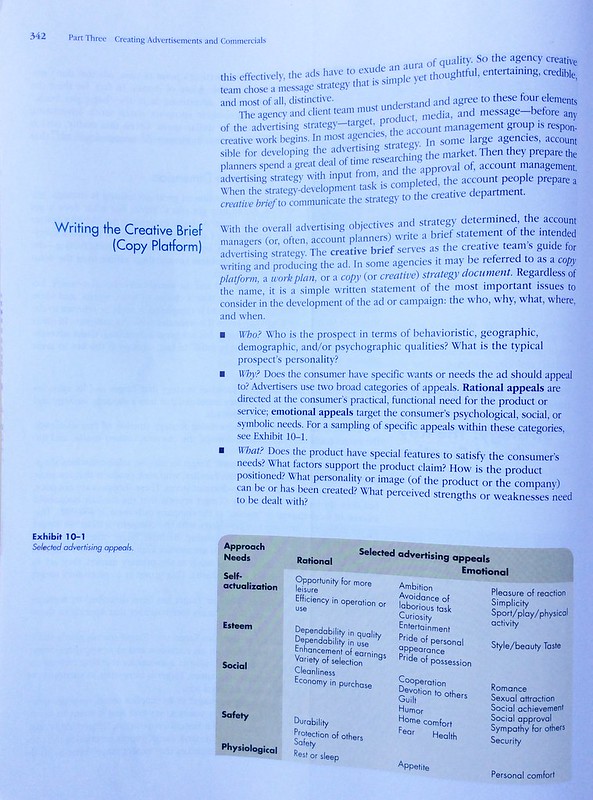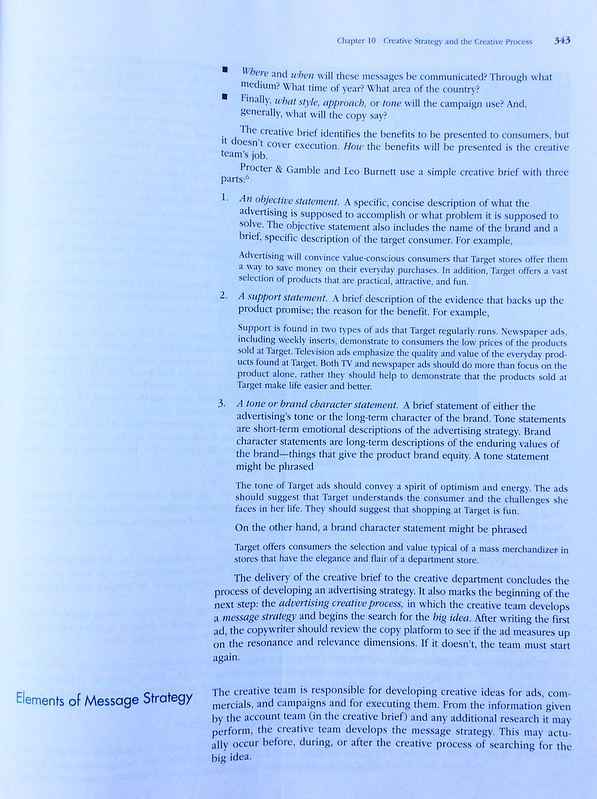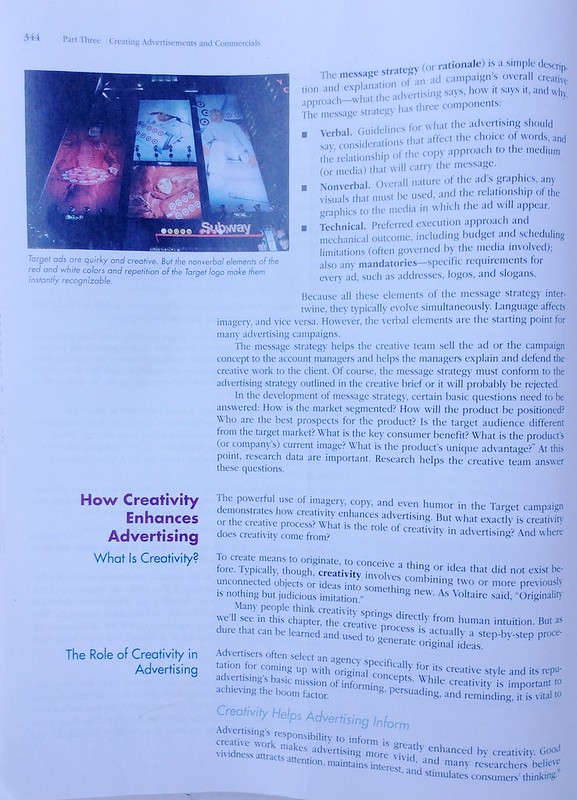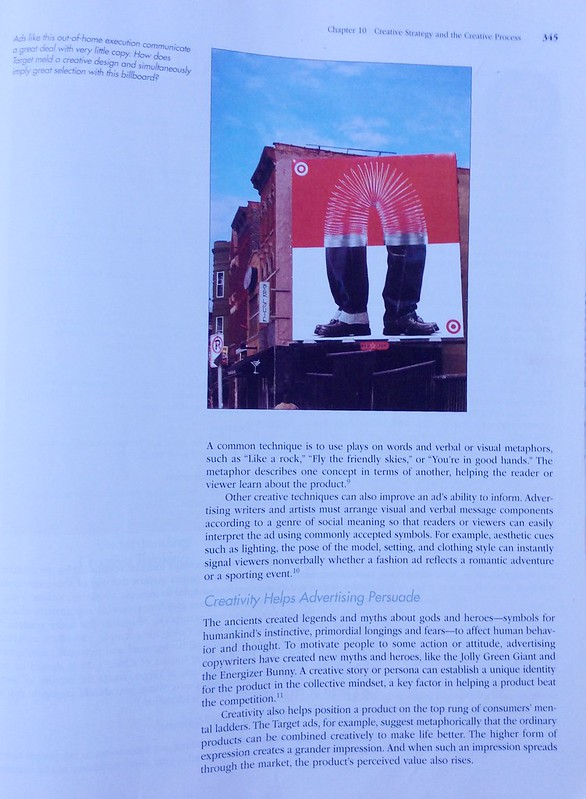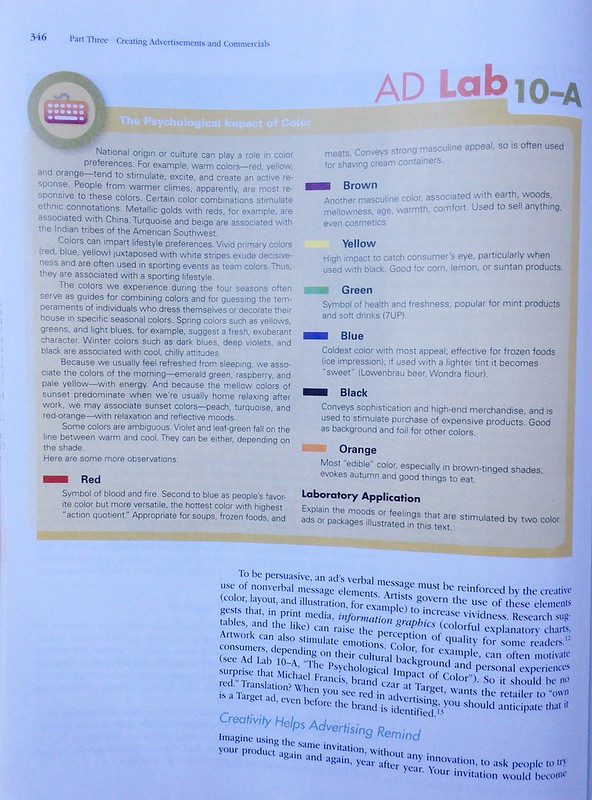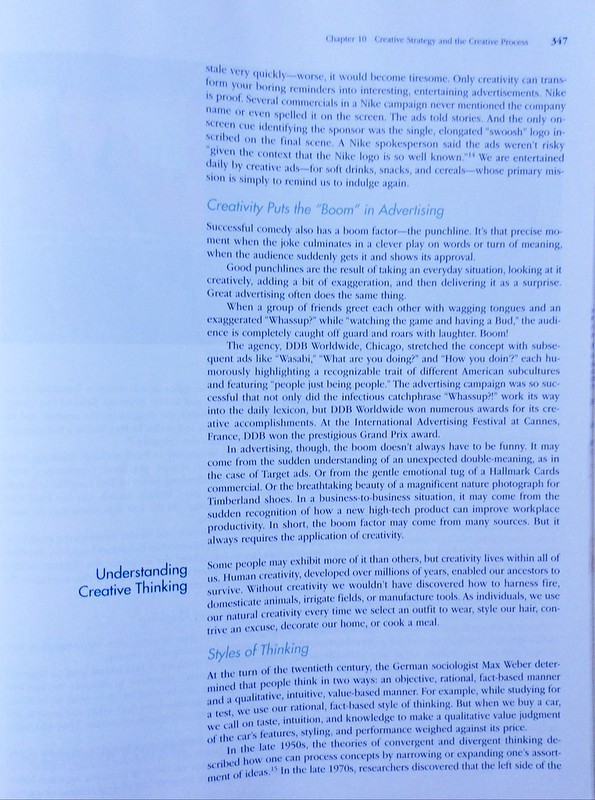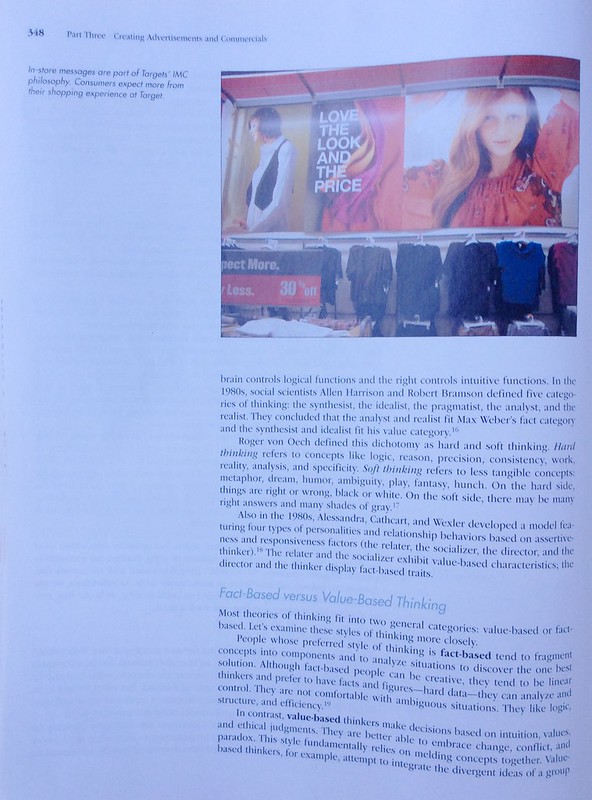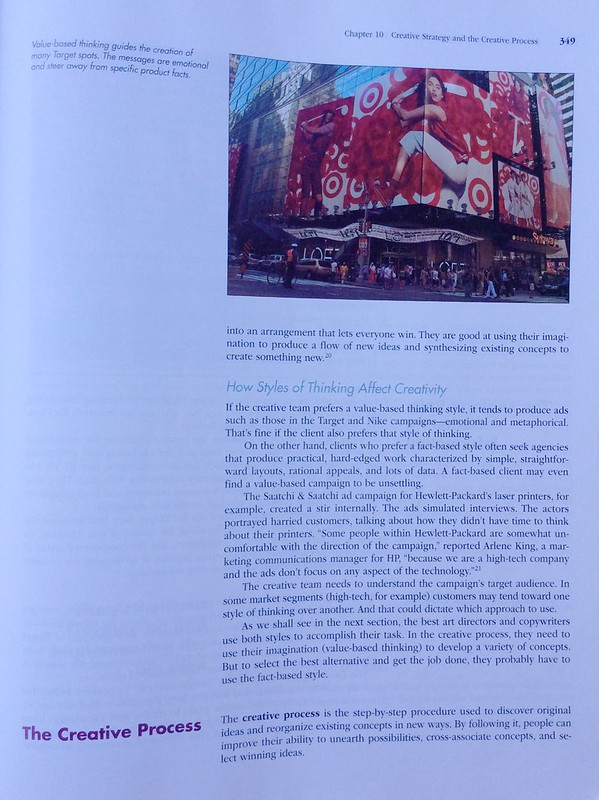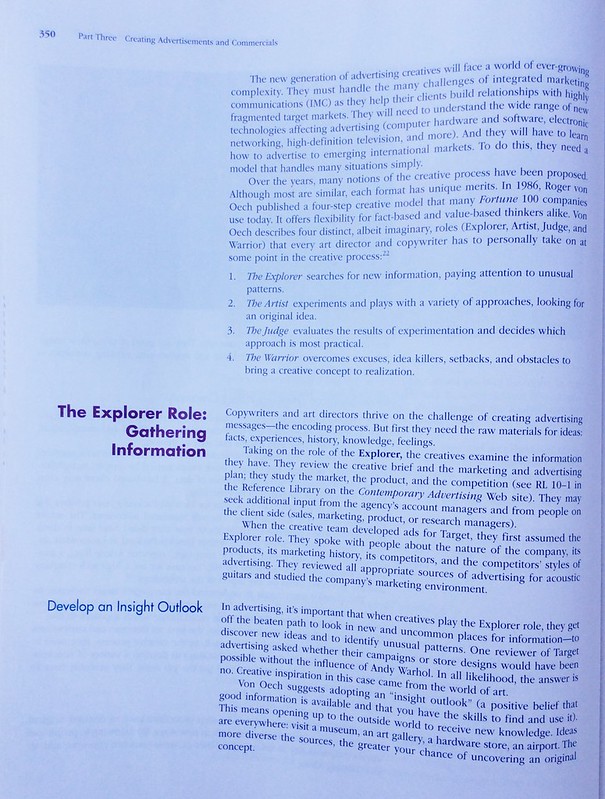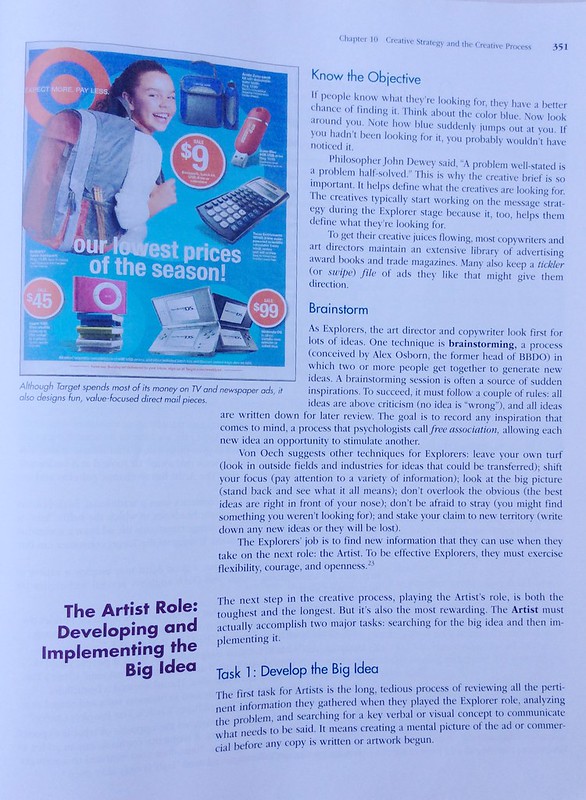Doing the half of my prelims :”>
THE PHILIPPINE CORPORATE ADDRESS BOOK
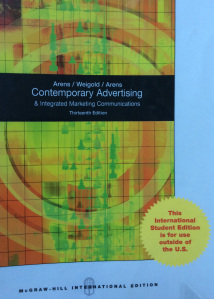 Contemporary Advertising and Integrated Marketing Communications by Arens 13th Ed.
Contemporary Advertising and Integrated Marketing Communications by Arens 13th Ed.
p. 336
Objectives
p.337
p.338
p.339
The Creative Team: The Originators of Advertising Creativity
What Makes Great Advertising?
p.340
The Resonance Dimension
p. 341
The Relevance Dimension
Formulating Advertising Strategy: The Key to Great Creative
P. 342 Writing the Creative Brief (Copy Platform)
P. 343 Elements of Message Strategy
p. 344 How Creativity Enhances Advertising
What is Creativity?
The Role of Creativity in Advertising
p. 345
Creativity Helps Advertising Persuade
p. 346
Creativity Helps Advertising Remind
p.347
Creativity Puts the “Boom” in Advertising
Understanding Creative Thinking
Styles of Thinking
p. 348
Fact-based versus Value-based thinking
p. 349
How Styles of Thinking Affect Creativity
The Creative Process
p. 350
The Explorer Role
Develop On Insight Outlook
p. 351
Know the Objective
Brainstorm
The Artist’s Role: Developing and Implementing the Big Idea
Task 1 Develop the Big Ideas
p. 352
Transforming the…
View original post 79 more words











